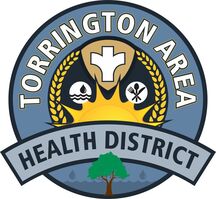Public Swimming Pools
Section 19-13-B33 of the Public Health Code establishes minimum standards for construction, safety and the operation of Public Swimming Pools. Pools and hot tubs at clubs, schools, condominiums, resorts, campgrounds and motels all come under the scope of this regulation. Pools rely on proper equipment operation, careful maintenance and close monitoring of the water chemistry balance to ensure a safe bathing environment for the public.
During hot, sunny summer days when a pool is under heavy use, the demand for chlorine is high. Frequent checks are necessary to maintain the proper pH and chlorine residual so that any bacteria or viruses from the bathers are quickly killed. For that reason, the absence of chlorine residual in a public pool is cause for immediate closure. When the pool chemistry is correct and the filtration equipment is operating properly the clarity of the pool water should be excellent.
A simple test is when a small black disk is thrown into the bottom of the deep end of the pool, it should be clearly visible from the deck. Cloudy or highly turbid water is a sure indication that something is wrong. The most common swimmer complaint of strong chlorine odors actually means there is inadequate levels of chlorine residual to prevent the combining of chlorine and organic matter in the pool to form chloramines which is what cause the odor. Chloramines are not effective killing agents and they irritate the eyes, nose and throat. Most operators have to periodically "super chlorinate" or "shock" their pool in order to eliminate chloramines.
Pools are licensed by the District and inspected frequently during the summer months. A complete facilities inspection is made by a trained sanitarian that includes the following:
During hot, sunny summer days when a pool is under heavy use, the demand for chlorine is high. Frequent checks are necessary to maintain the proper pH and chlorine residual so that any bacteria or viruses from the bathers are quickly killed. For that reason, the absence of chlorine residual in a public pool is cause for immediate closure. When the pool chemistry is correct and the filtration equipment is operating properly the clarity of the pool water should be excellent.
A simple test is when a small black disk is thrown into the bottom of the deep end of the pool, it should be clearly visible from the deck. Cloudy or highly turbid water is a sure indication that something is wrong. The most common swimmer complaint of strong chlorine odors actually means there is inadequate levels of chlorine residual to prevent the combining of chlorine and organic matter in the pool to form chloramines which is what cause the odor. Chloramines are not effective killing agents and they irritate the eyes, nose and throat. Most operators have to periodically "super chlorinate" or "shock" their pool in order to eliminate chloramines.
Pools are licensed by the District and inspected frequently during the summer months. A complete facilities inspection is made by a trained sanitarian that includes the following:
- The water clarity is checked and the levels of chlorine and pH are recorded. Pool water samples are collected for lab testing to ensure the absence of bacteria.
- The filtration and chlorination equipment are inspected and checked for proper operation.
- A review of the safety and first aid equipment is conducted and emergency procedures are reviewed with the pool staff.
- The shower, locker and toilet facilities are inspected for general cleanliness and proper maintenance.
- The decks, fencing, diving boards and general pool area are examined for possible safety hazards.


